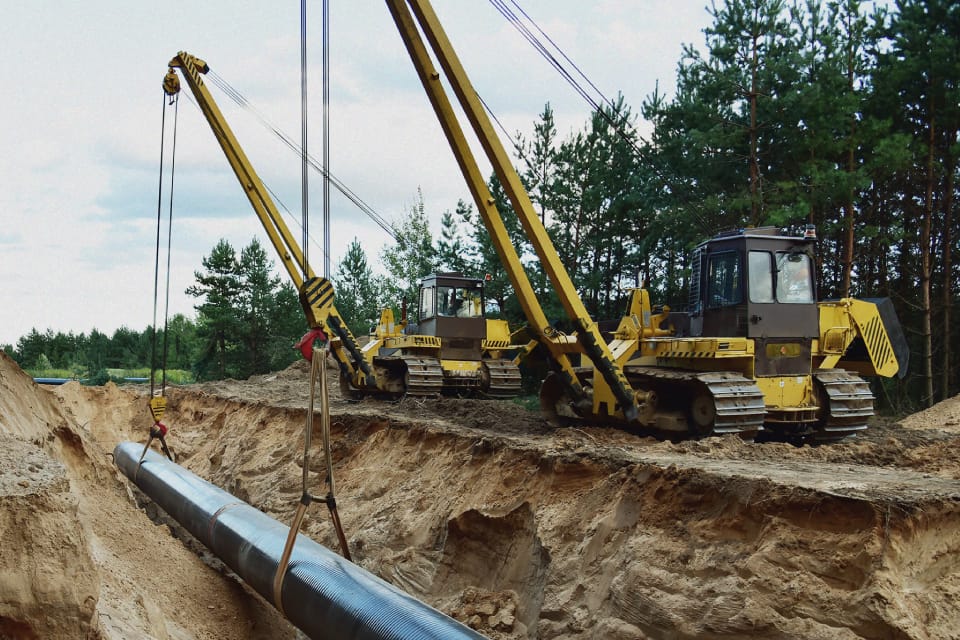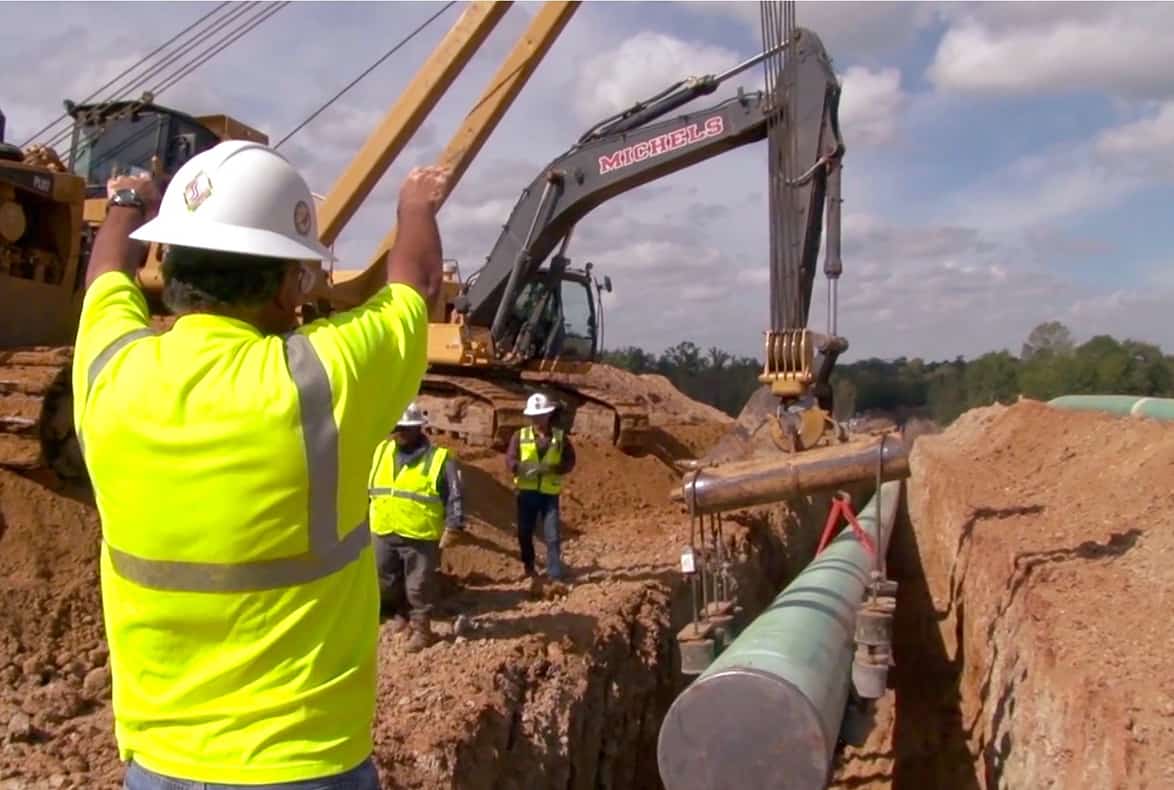How to Vet Creek Pipe reviews Before Hiring a Pipe Contractor
Wiki Article
Understanding the Fundamentals of Pipes Installation: What You Need to Know Concerning the Process
Proper pipe installation is essential for any type of pipes system. It requires mindful consideration of various factors, including product selection and adherence to local regulations. A tactical format can avoid problems like stress loss, while the right tools assure effective joining methods. Nonetheless, even experienced installers can make usual errors. Understanding these basics can cause a more efficient and resilient system, motivating a more detailed consider the vital aspects involved in the procedure.Choosing the Right Products for Pipe Installation
When thinking about pipe installation, the choice of ideal materials is necessary to guaranteeing sturdiness and functionality. Numerous materials are readily available, each offering unique advantages and considerations. For instance, PVC pipelines are light-weight, resistant to corrosion, and economical, making them suitable for property plumbing. On the other hand, copper pipelines, recognized for their durability and capability to hold up against high temperatures, are commonly chosen for home heating systems.Additionally, galvanized steel pipes give toughness and resilience, appropriate for durable applications, although they are susceptible to corrosion over time.For below ground installations, polyethylene pipes are favored because of their versatility and resistance to tension fracturing. Appropriate material selection depends on the details demands of the task, consisting of stress rankings, temperature level variations, and the chemical nature of the liquids being delivered - Creek Pipe Company. Eventually, educated selections relating to pipe materials add greatly to the overall success and longevity of plumbing systemsComprehending Local Building Codes and Regulations
Just how can comprehending local structure codes and laws effect pipe installation? Familiarity with these codes is vital for making sure that pipe installations are secure, certified, and reliable. Regional building regulations describe details needs pertaining to materials, installation strategies, and safety and security actions, which have to be followed in order to avoid possible lawful problems and expensive fines.Failure to comply can cause examinations being fallen short, delays in task conclusion, or perhaps mandated elimination of improperly installed pipelines. In enhancement, comprehending zoning legislations and laws can affect the sort of products allowed, in addition to the methods used for installation.Contractors and property owners alike ought to spend time in assessing neighborhood policies prior to starting any kind of installation job. This positive strategy not just advertises security however additionally boosts the total quality and toughness of the pipes system, ultimately fostering long-term capability and fulfillment.Planning Your Pipe Design and Design
Proper planning of pipe format and style is vital for attaining a reliable plumbing system. This procedure starts with evaluating the details requirements of the area, thinking about the area of fixtures and appliances. Precise dimensions guarantee that pipelines are effectively routed, decreasing bends and turns that can lead to push loss.Consideration of the circulation prices and the sorts of products made use of is crucial, as different materials have varying sturdiness and compatibility with plumbing systems. In addition, the designer must account for future developments or alterations to the layout, enabling flexibility in situation of renovations.Efficient drainage and ventilation are also substantial parts of the style, as they prevent obstructions and ensure correct waste removal. Cooperation with neighborhood structure codes assures compliance and safety, which is extremely important in any pipes installation task.Vital Tools and Equipment for Installation
Successful pipe installation depends upon having the right devices and devices available. Important tools include pipe cutters for tidy cuts, wrenches for tightening installations, and pliers for gripping and transforming pipes. Additionally, a level warranties pipes are installed evenly, while a gauging tape help in attaining specific lengths.For certain materials, a welding torch might be necessary for copper pipelines, while a PVC cutter is vital for plastic alternatives. Safety and security devices, such as gloves and goggles, secures installers from possible threats throughout the process.A pipe bender can be particularly useful for creating smooth curves without jeopardizing stability, while a torque wrench warranties that links are secured to the supplier's specifications.Having these devices conveniently offered not only assists in a smoother installation procedure but likewise contributes to the overall toughness and functionality of the pipes system. Appropriate tools is crucial in accomplishing durable outcomes.Techniques for Appropriate Pipe Signing Up With and Sealing
Attaining a safe and secure and leak-free connection between pipelines see this here requires cautious interest to joining and sealing techniques. Different techniques exist, each matched to different pipe materials and applications (Creek Pipe reviews). Welding is typically used for metal pipelines, ensuring durable links through warmth blend. On the other hand, plastic pipes take advantage of solvent concrete or fusion welding, producing strong, irreversible bonds.Threaded connections are usual in both metal and plastic piping, requiring exact placement and the usage of proper sealers, such as Teflon tape or pipe dope, to stop leaks. Compression installations use another alternative, where mechanical pressure secures the pipelines together, making them quickly took apart for maintenance.Regardless of the method picked, appropriate prep work is necessary. This includes cleaning pipe ends and ensuring they are devoid of particles. Carrying out these strategies vigilantly will improve the longevity and dependability of the pipe system, ultimately adding to its effective efficiencyCommon Blunders to Stay Clear Of During Installation
Throughout pipe installation, preventing usual errors is vital for ensuring a trustworthy and efficient system. One regular mistake is falling short to gauge and reduce pipes properly, which can cause incorrect fittings and leaks. Additionally, disregarding to check the compatibility of products can cause deterioration or other damage with time. Improperly securing joints and connections can additionally produce weak points in the system, causing possible failures.Another common mistake is overlooking the value of incline and drainage; pipes should be installed at the proper angle to facilitate appropriate circulation. Inadequate support for pipes can result in sagging and tension, influencing the integrity of the system. Ultimately, neglecting neighborhood codes and regulations can result in costly rework and security dangers. By being mindful of these pitfalls, installers can considerably boost the sturdiness and efficiency of pipe systems.Maintenance Tips for Lasting Pipe Systems
To assure the durability of pipe systems, regular inspections and cleansing are necessary methods. These steps help recognize prospective issues prior to they intensify into major problems. Furthermore, utilizing correct insulation strategies can better protect pipelines from temperature variations and ecological variables.Regular Examinations and Cleaning
Regular assessments and cleaning are necessary for maintaining the long life and effectiveness of pipe systems. On a regular basis checking out pipes for indications of rust, leaks, or obstructions can aid recognize prospective concerns before they intensify right into costly repair services. Cleansing pipes regularly gets rid of buildup that can limit circulation and promote wear and tear. It is suggested to schedule evaluations a minimum of annually, however browse around this site extra regular checks may be essential in high-usage atmospheres. Using professional solutions for complete cleansing warranties that all debris go to website is successfully gotten rid of. Additionally, maintaining records of examinations and upkeep activities aids in tracking the system's health over time - Creek Pipe trenching services. By focusing on these practices, home proprietors can enhance the reliability and lifespan of their pipe systemsProper Insulation Techniques
Effective insulation strategies play an essential duty in maintaining the performance and long life of pipe systems. Appropriate insulation lessens warm loss in hot water pipes and protects against cold in chilly water pipes, considerably reducing energy prices and possible damages. Typical materials utilized for insulation include fiberglass, foam, and rubber, each offering varying levels of thermal resistance. It is important to guarantee that insulation is used consistently, covering all exposed locations without voids. In addition, protecting insulation with suitable bolts assists maintain its placement and performance with time. Normal examinations need to be performed to recognize deterioration, ensuring prompt substitutes. By applying these methods, pipe systems can operate effectively and have an extended life span, inevitably profiting both the setting and the home owner.
Often Asked Concerns
How Do I Figure Out the Appropriate Pipe Dimension for My Project?
Establishing the proper pipe size entails examining the project's circulation needs, pressure specs, and the sort of fluid being transferred. Consulting layout standards and performing computations guarantees ideal efficiency and effectiveness in the installation process.What Are the Environmental Influences of Various Pipe Materials?

Can I Install Pipes Myself or Should I Employ an Expert?
The concern of whether to set up pipes independently or work with a specialist often depends on the person's skill degree and project intricacy. A specialist might assure compliance with guidelines and reduce prospective lasting problems.
How Lengthy Can I Anticipate My Pipe Installation to Last?
The longevity of pipe installation varies considerably, generally lasting 20 to 100 years, relying on materials, installation high quality, and maintenance. Routine assessments and appropriate care can enhance longevity and avoid premature failings.
What Are the Signs of a Failing Pipe System?
Signs of a stopping working pipe system include frequent leaks, uncommon water pressure modifications, tarnished water, mold development, and relentless dampness. House owners need to check these signs to prevent pricey damages and guarantee prompt repair services are made.Report this wiki page